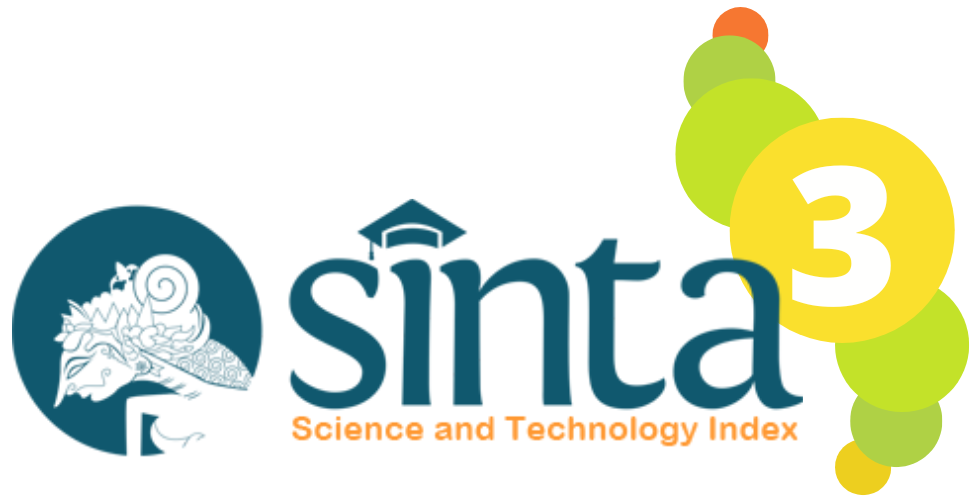Pemanfaatan Media Digital di Sekolah Dasar Pada Era Digital Native Generation
Sari
Kata Kunci
Teks Lengkap:
PDFReferensi
Aditya, D. S. (2021). EMBARKING DIGITAL LEARNING DUE TO COVID-19: ARE TEACHERS READY? Journal of Technology and Science Education, 11(1), 104–116. https://doi.org/https://doi.org/10.3926/jotse.1109
Andarwulan, T., Al Fajri, T. A., & Damayanti, G. (2021). Elementary teachers’ readiness toward the online learning policy in the new normal era during Covid-19. International Journal of Instruction, 14(3), 771–786. https://doi.org/10.29333/iji.2021.14345a
Aydin, E., & Erol, S. (2021). The Views of Turkish Language Teachers on Distance Education and Digital Literacy during Covid-19 Pandemic. International Journal of Education and Literacy Studies, 9(1), 60. https://doi.org/10.7575/aiac.ijels.v.9n.1p.60
Bennett, S., & Maton, K. (2010). Beyond the “digital natives” debate: Towards a more nuanced understanding of students’ technology experiences. Journal of Computer Assisted Learning, 26(5), 321–331. https://doi.org/10.1111/j.1365-2729.2010.00360.x
Carrillo, C., & Flores, M. A. (2020). COVID-19 and teacher education: a literature review of online teaching and learning practices. European Journal of Teacher Education, 43(4), 466–487. https://doi.org/10.1080/02619768.2020.1821184
Helsper, E. J., & Eynon, R. (2010). Digital natives: Where is the evidence? British Educational Research Journal, 36(3), 503–520. https://doi.org/10.1080/01411920902989227
Krutka, D. G., Nowell, S., & Whitlock, A. M. (2017). Towards a social media pedagogy: Successes and shortcomings in educative uses of Twitter with teacher candidates. Journal of Technology and Teacher Education, 25(2), 215–240. https://www.learntechlib.org/primary/p/161880/
Li, M., & Yu, Z. (2022). Teachers’ Satisfaction, Role, and Digital Literacy during the COVID-19 Pandemic. Sustainability (Switzerland) , 14(3). https://doi.org/10.3390/su14031121
Reid, L., Button, D., & Brommeyer, M. (2023). Challenging the Myth of the Digital Native: A Narrative Review. Nursing Reports, 13(2), 573–600. https://doi.org/10.3390/nursrep13020052
Saputra, A. G., Rahmawati, T., Andrew, B., & Amri, Y. (2022). Using Canva Application for Elementary School Learning Media. Scientechno: Journal of Science and Technology, 1(1), 46–57. https://doi.org/https://doi.org/10.55849/scientechno.v1i1.4
Sugiyono. (2012). Metode Penelitian Kuantitatif, Kualitatif, dan R&D. Alfabeta.
Susilowati, I. H., Nugraha, S., Alimoeso, S., & Hasiholan, B. P. (2021). Screen Time for Preschool Children:Learning from Home during the COVID-19 Pandemic. Global Pediatric Health, 8, 1–6. https://doi.org/10.1177/2333794X211017836
Záhorec, J., Hašková, A., & Munk, M. (2019). Teachers’ professional digital literacy skills and their upgrade. European Journal of Contemporary Education, 8(2), 378–393. https://doi.org/10.13187/ejced.2019.2.378
Zylfiu, B. G., & Rasimi, A. (2020). Challenges and Advantages of Online Learning: The Case of Kosovo. International Jurnal of Management (IJM), 11(10), 1873–1880. https://doi.org/10.34218/IJM.11.10.2020.175
DOI: https://doi.org/10.33387/j.edu.v23i1.9581
Refbacks
- Saat ini tidak ada refbacks.
| Journal Name | Jurnal Edukasi |
| Print ISSN | 1978-6115 |
| Elektronik ISSN | 2597-9213 |
| Publisher | Fakultas Keguruan dan Ilmu Pendidikan (FKIP) Universitas Khairun |
| Address | Jalan Bandara Sultan Baabullah Kampus I Unkhair, Kelurahan Akehuda, 97728 Kecamatan Kota Ternate Utara, Provinsi Maluku Utara |
| Country | Indonesia |
| j.edukasi@unkhair.ac.id / edukasi2019@gmail.com | |
| URL | https://ejournal.unkhair.ac.id/index.php/edu/index |
| DOI | http://doi.org/10.33387/edu |
Indexed By:
-----------------------------------------------------------------------------------------------------------------------------------------------------------------------------

EDUKASI is licensed under a‚ Creative Commons Attribution-NonCommercial 4.0 International License.












